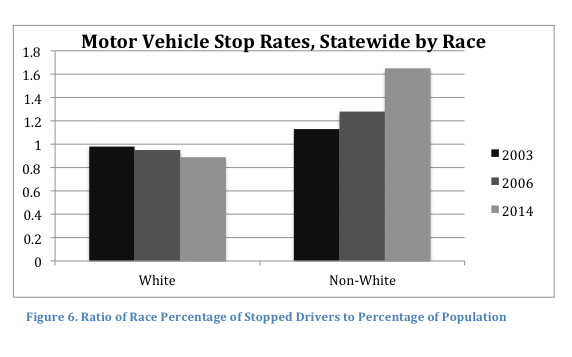
Susan Herman, president of the American Civil Liberties Union who is in Rhode Island today to speak at a panel discussion on policing, said she is not surprised to learn that a white police officer shot a Black man in South Carolina.
“I wish I could say I was surprised,” she told me. “Unfortunately it’s not news that a Black man was shot by a white police officer. That’s happened 100 times since March. What is news is that the system actually responded and the officer will be charged.”
A constitutional law professor who has headed the ACLU since 2008, Herman said the response in South Carolina compared to the response in Ferguson is encouraging.
“It’s a sign that an awareness has been sparked by the troubling events in Ferguson, and that awareness is starting to bear fruit,” she said. “It’s possible that South Carolina is being so responsive because the American people have woken up to the fact that Black lives do matter.”
Herman said more and more of the ACLU’s work is being focused on racial issues, such as those related to the Black Lives Matter movement, because people of color much more frequently have their civil liberties curtailed. “Ever since Ferguson there has been tremendous interest in stories like this,” she said. “I think prior to Ferguson, a lot of people thought there wasn’t a problem.”
Nationally, she said, the ACLU is focusing attention on mass incarceration and voter suppression laws, both of which disproportionately adversely affect people of color. “What’s special about the ACLU is we connect the dots,” she said, invoking the famous ACLU catch phrase – ‘defend everybody.'”
She termed the amount of money the United States invests incarcerating its citizens as “staggering,” adding, “We’re stripping money from schools so that we can lock people up. It’s a great big societal mistake.”
And Herman referred to voter ID laws as “voter suppression laws,” saying, “if our public servants are not accountable to the people, there’s no limit on what they can do.” I asked her if she was surprised that a nominally liberal state like Rhode Island has such a law and she said, “It’s really just a political tool and there’s not just one party that tries to give itself an advantage.”
I asked her to give the Ocean State a grade on defending Rhode Islanders civil liberties, and she declined saying instead, “If even one person in Rhode Island is searched because of their race, that’s bad.”

